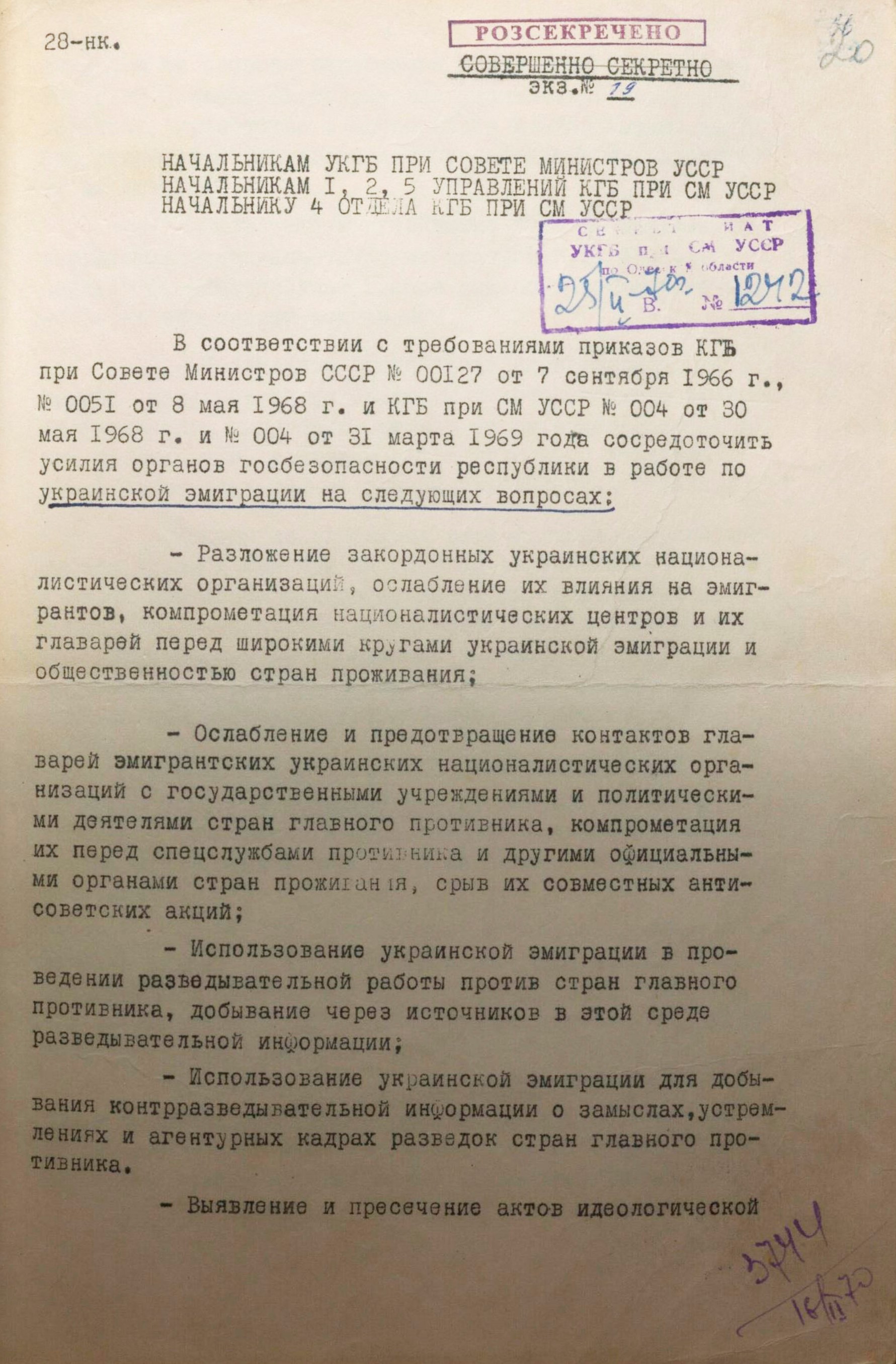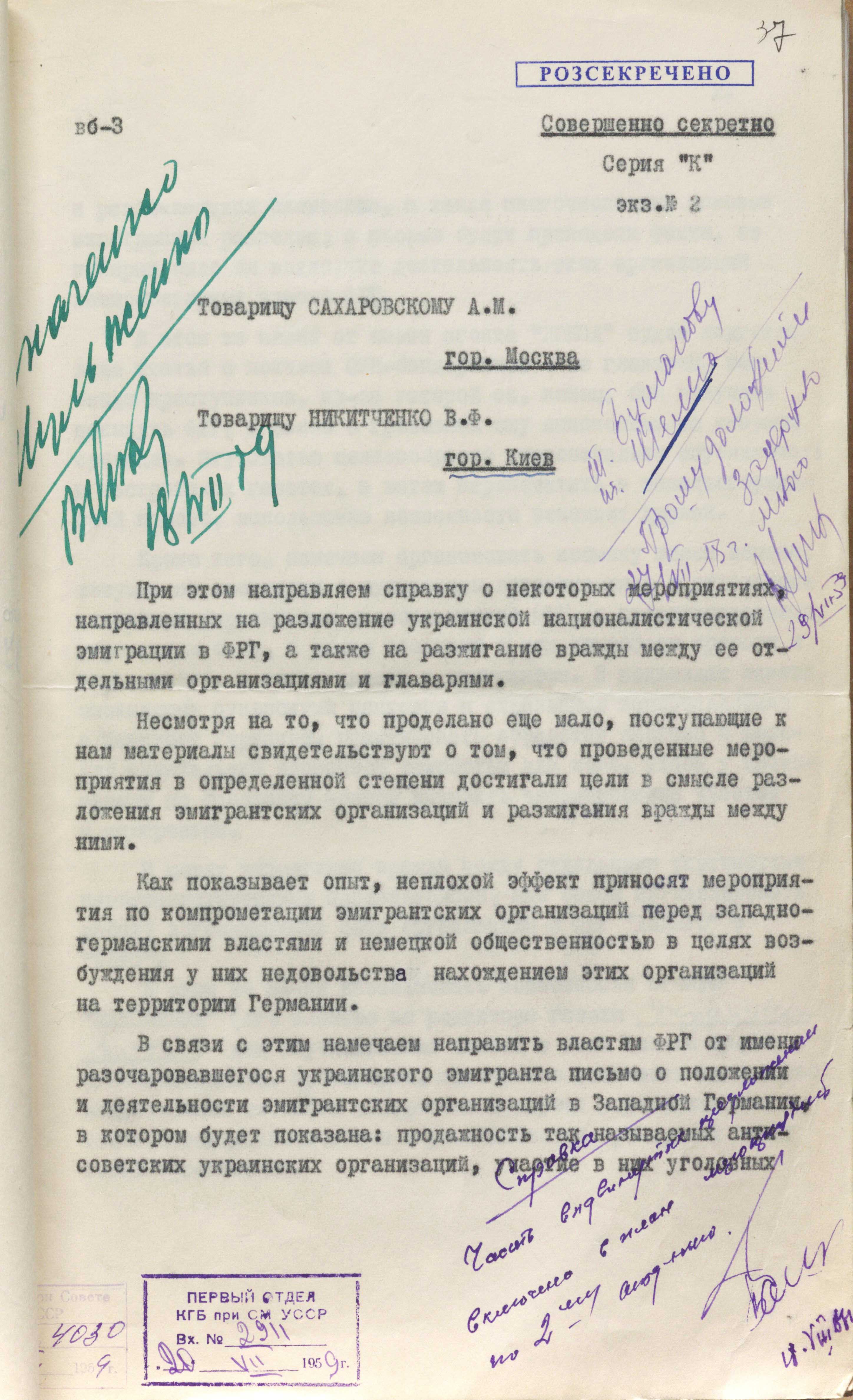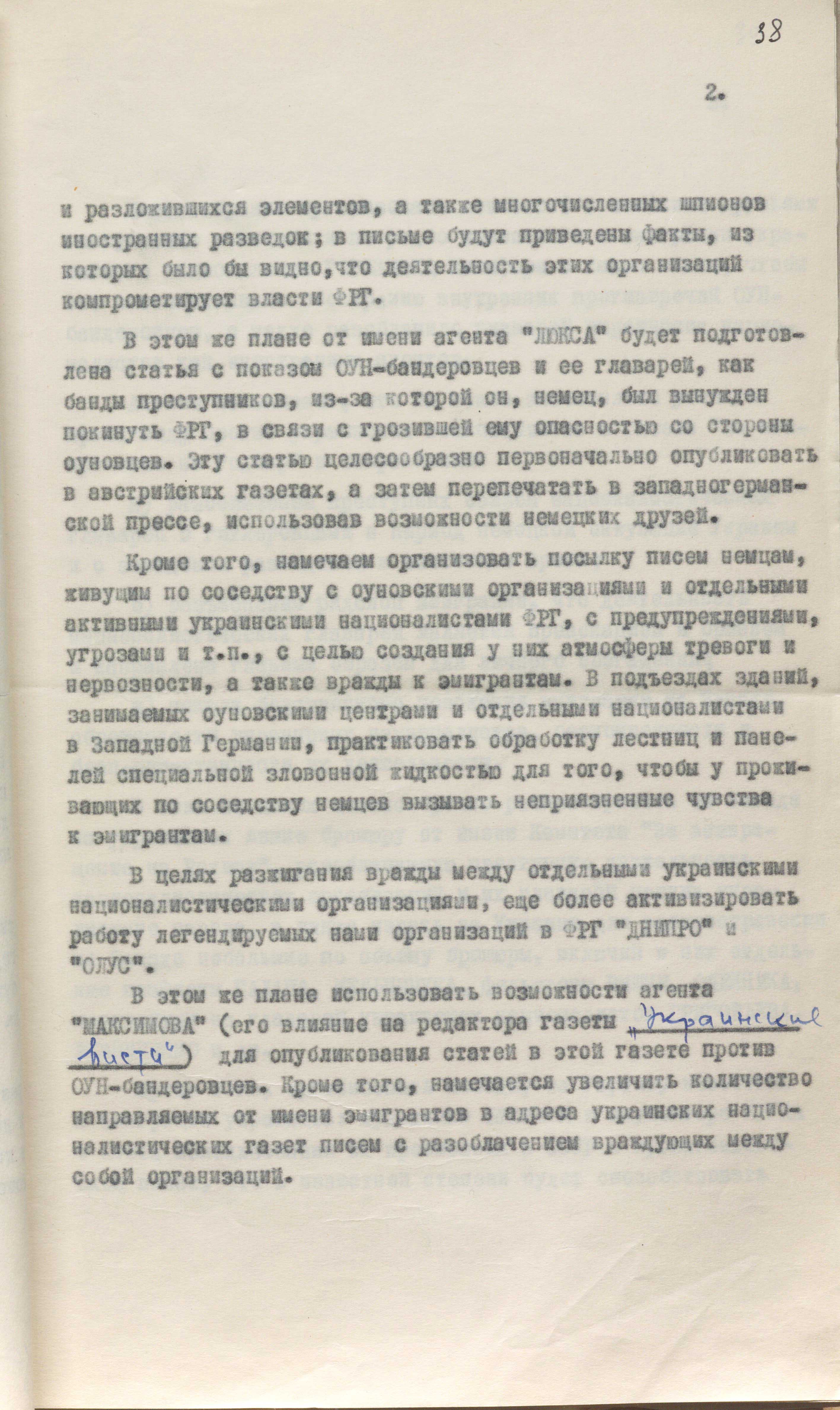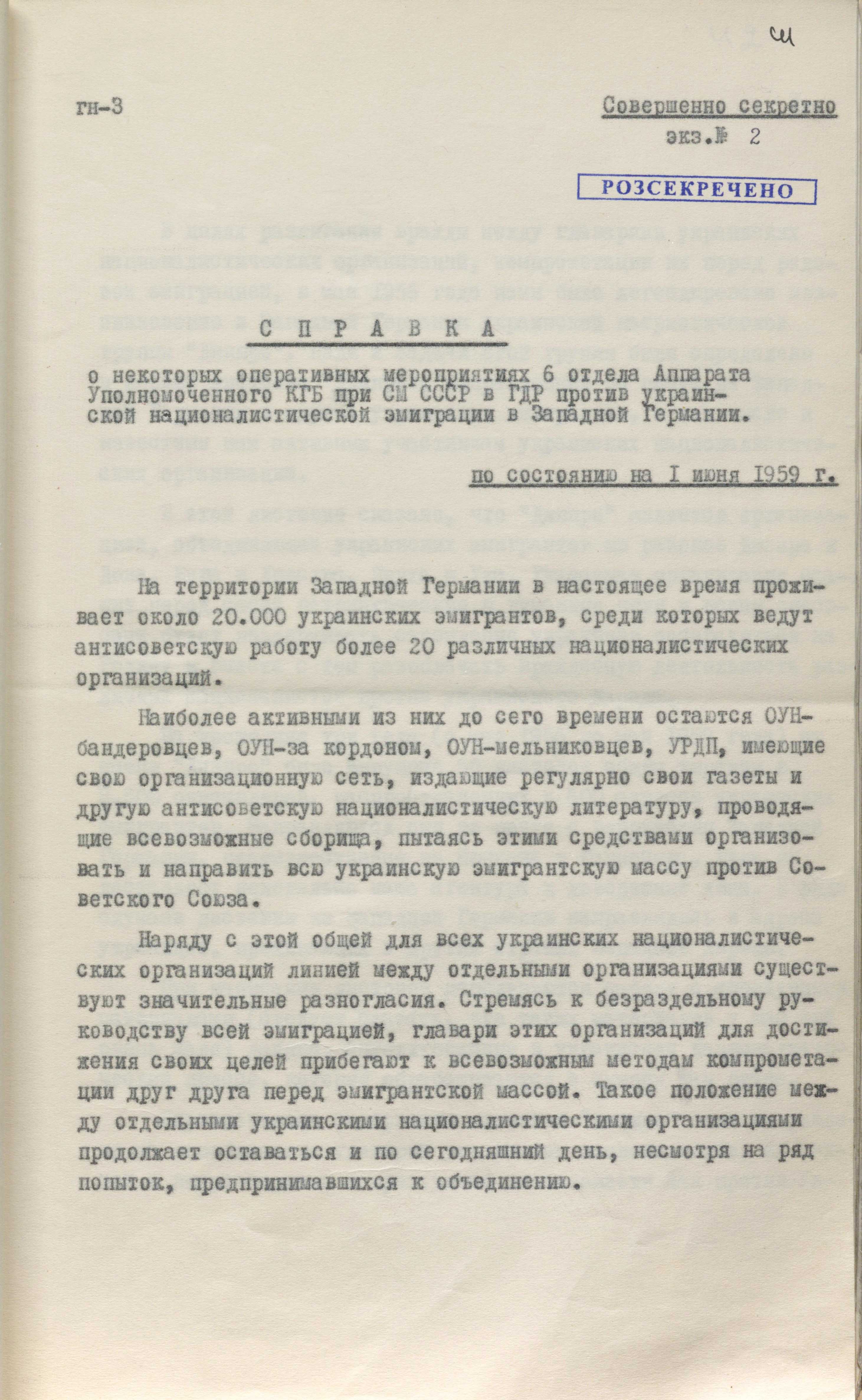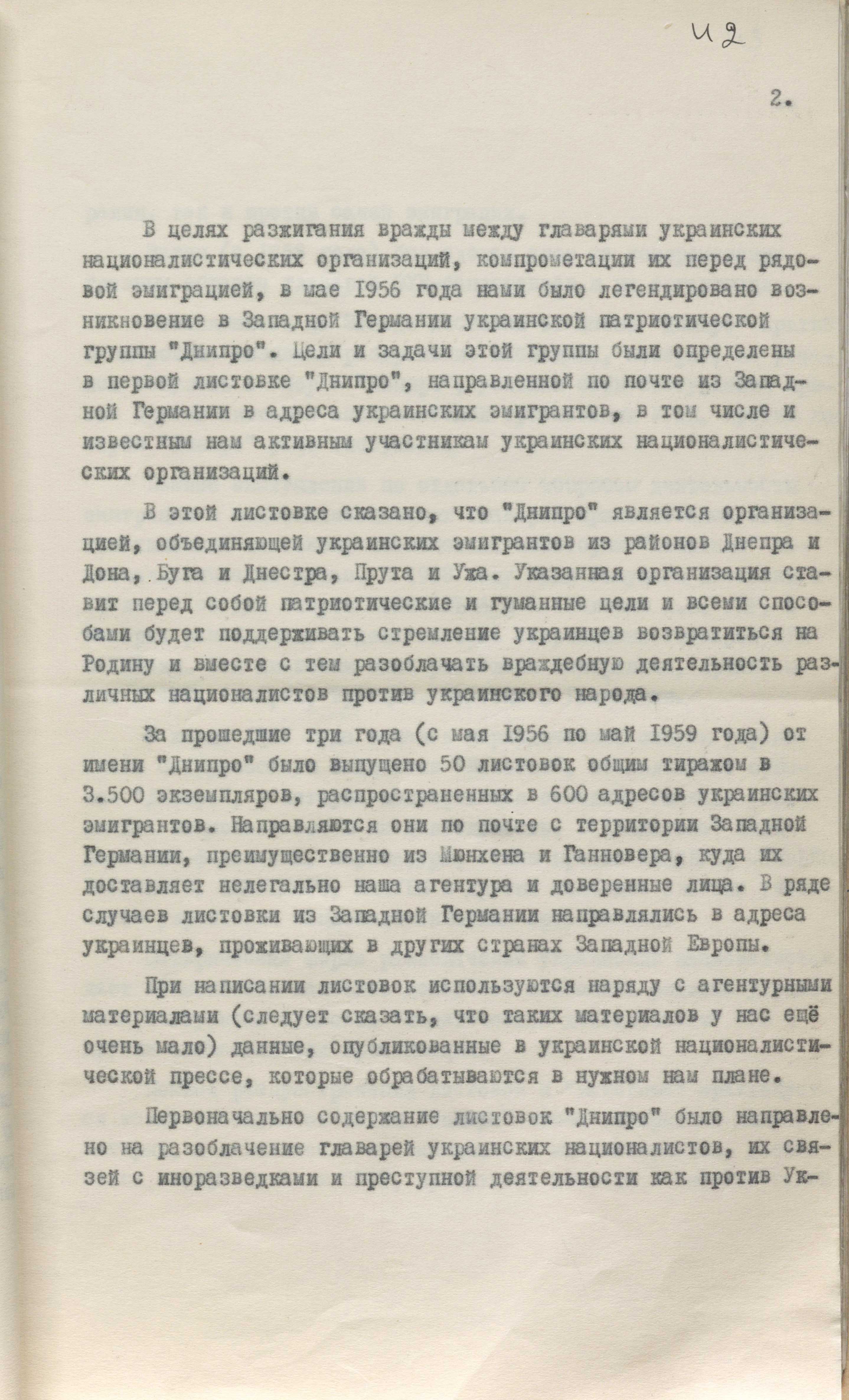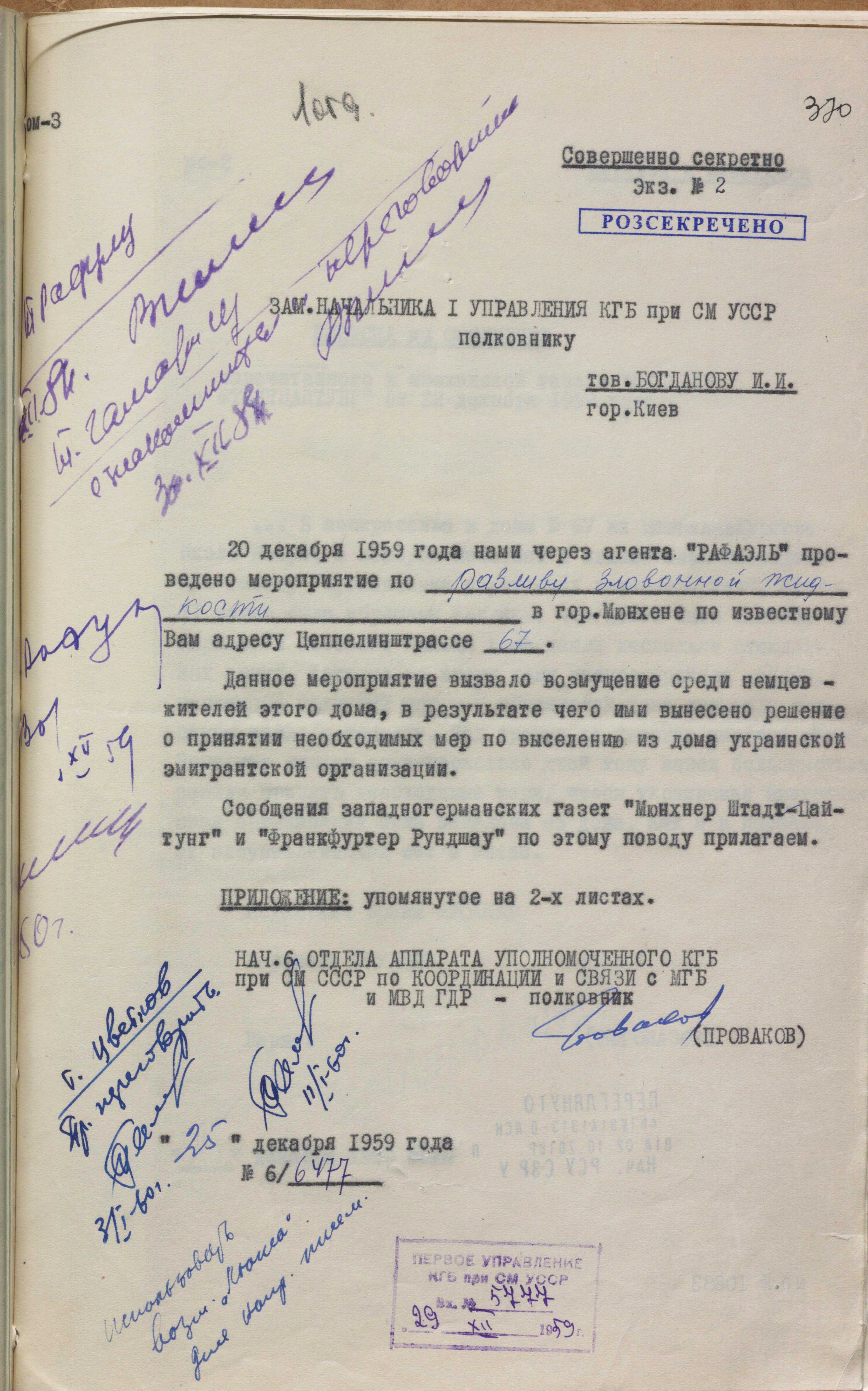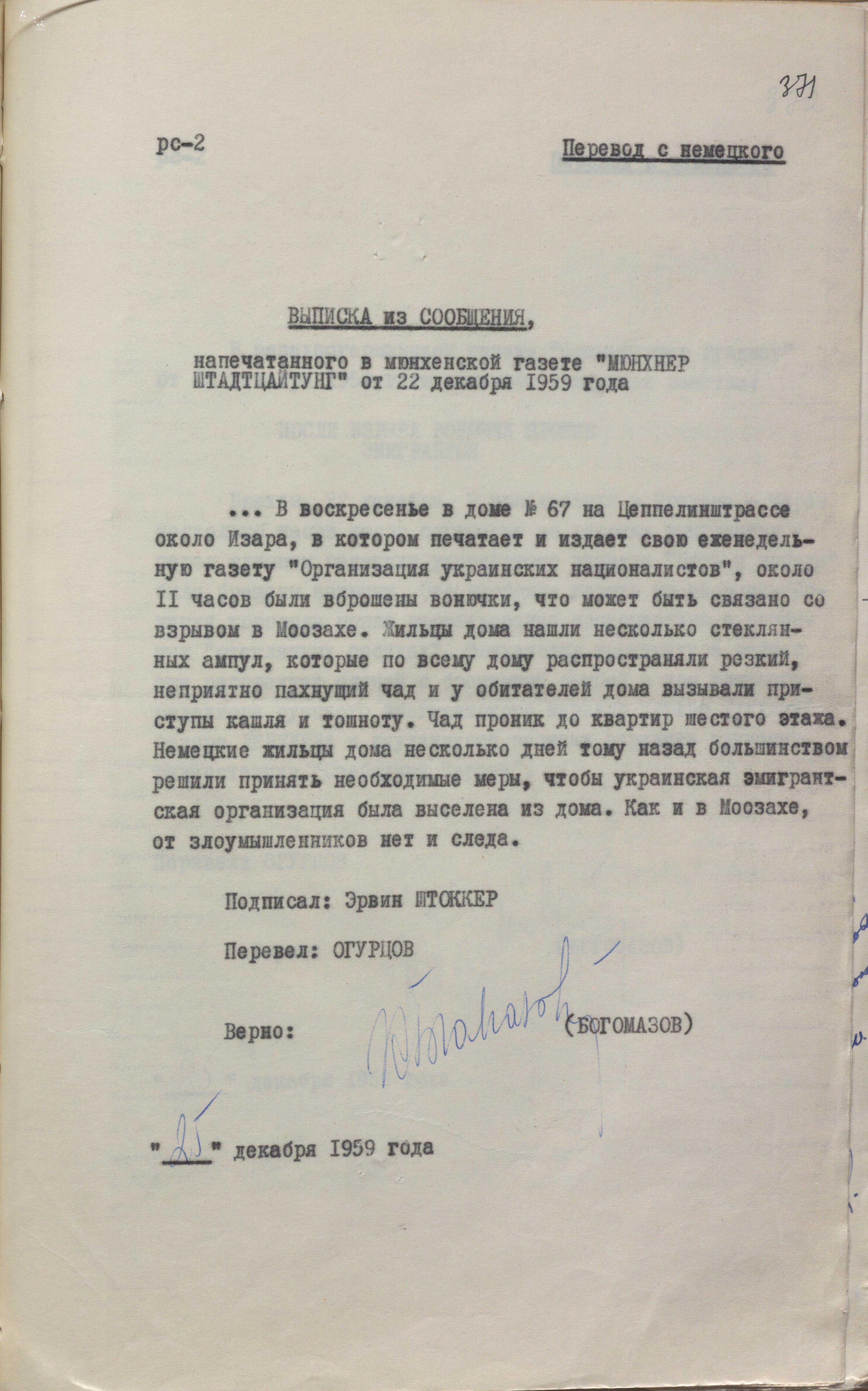“To Provoke a Negative Attitude to Ukrainian Emigrants”
11/15/2024
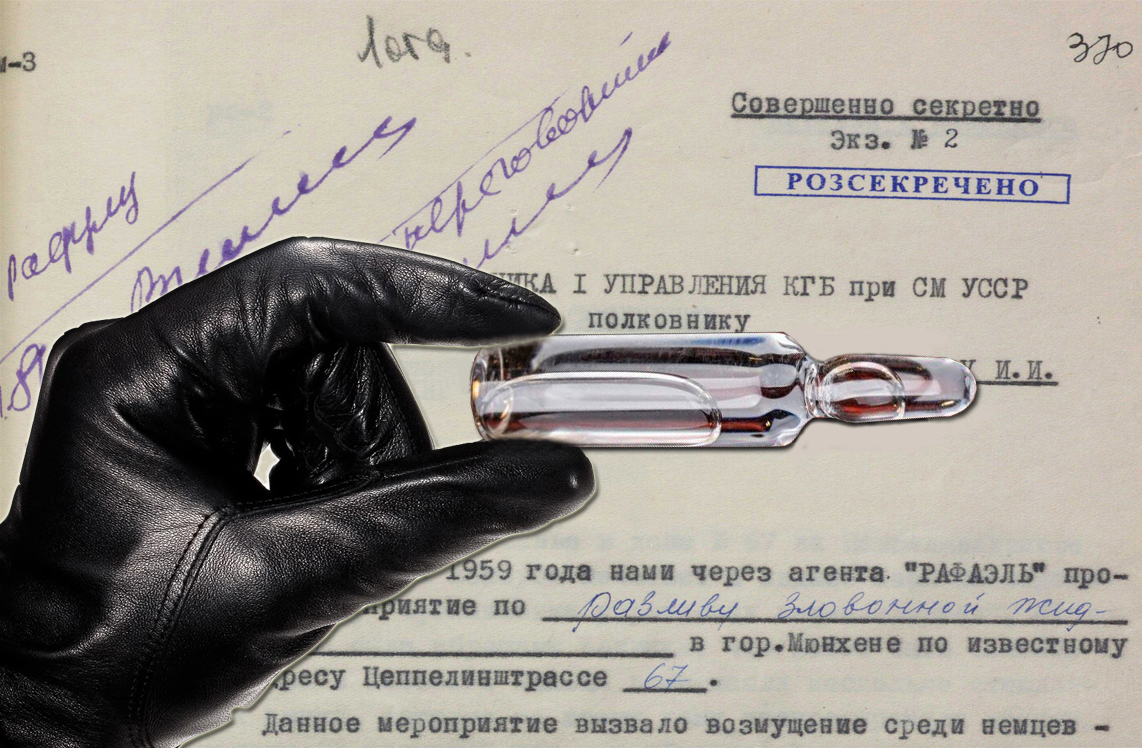
Declassified documents from the archives of the Foreign Intelligence Service of Ukraine allow us to learn about hitherto unknown dirty methods from the arsenal of the kgb of the ussr, which were once used against Ukrainian emigrants. Among them – provoking unfriendly feelings, negative attitude and enmity towards emigrants in the countries of their compact residence. This is stated in the kgb’s administrative documents, plans, reports, and messages. The ways in which it was done now cause indignation and revulsion.
One of the case files of the kgb of the Ukrainian ssr, dating from the late 1950s, contains documents that show how the chekists tried to create a negative image of Ukrainians in countries of forced residence and to obstruct their social and political activities in every possible way, in particular in the Federal Republic of Germany. One of them recommended the widespread use of measures to compromise Ukrainian emigrant organizations in the eyes of authorities and the West German public “in order to create a sense of dissatisfaction with the presence of these organizations in Germany”.
To this end, it was proposed to fabricate and send letters to German authorities, emphasizing that there was allegedly hostility within those organizations, that they were riddled with criminal elements leading unhealthy lifestyles, and that many of their members were spying for foreign intelligence services. All of this had to be supported by concrete examples, of course, fictionalized. And finally, – calls on the authorities to take appropriate measures.
“In addition, we plan to organize sending letters to Germans”, the document stated, “who live in the neighborhood of OUN organizations and some active Ukrainian nationalists in Germany, with warnings, threats, etc., with the aim to create an atmosphere of anxiety and nervousness, as well as hostility towards emigrants. In the entrances of houses occupied by OUN centers and individual nationalists in West Germany, to practice treating the stairs and walls with a special smelly liquid in order to create unfriendly feelings towards emigrants in Germans living nearby” (BSA of the SZR of Ukraine. - F.1. - Case 10791. - P. 38).
A few months later, the office of the kgb commissioner at the mgb of the German democratic republic reported the following: “On December 20, 1959, we, through agent “Rafael”, carried out measures to spill a stinking liquid in Munich at the address which you know: Zeppelinstrasse, 67. This action caused dissatisfaction among the Germans –residents of the house, as a result of which they decided to take measures to evict the Ukrainian emigrant organization from the building” (BSA of the SZR of Ukraine. - F.1. - Case 10791. - P. 370).
On this occasion, local newspapers reported that in the entrance of the building where the newspaper of the Organization of Ukrainian Nationalists was located, residents found several broken glass ampoules that emitted a pungent, foul smell that caused nausea and coughing attacks. There were versions that this was done by political rivals in the emigrant community or those who simply wanted to evict the editorial office and get the premises for themselves. But the case was never completed.
At the same time, it has only now become known from the archival documents, that that shameful and low-level action was coordinated with moscow, where the liquid was specially designed, manufactured, and tested in secret laboratories, and then a kgb agent with the ampoules was sent from the GDR to the site of the operation. As it was in the case with Bohdan Stashynskyi, the agent would study the situation near the house for some time and then fulfill the task. And someone must have received an award for this – for spilling a smelly liquid in the entrance of a German house. As well as for the murder of Ukrainian liberation movement leaders Lev Rebet and Stepan Bandera in Munich with ampoules containing a powerful poison, and in recent times – for the use of the poisonous substance “novichok” by russian spies in the British city of Salisbury.
In order to sow enmity and provoke an atmosphere of distrust and suspicion among the Ukrainian emigration, the kgb used also other methods. This is evidenced by the document “On some operational measures of the 6th department of the office of the kgb commissioner under the soviet of ministers of the ussr in the GDR against the Ukrainian nationalist emigration in West Germany”, dated June 1959. It states that in May 1956, the kgb initiated the creation of the “fake Ukrainian patriotic group “Dnipro” in Germany. The group positioned itself as standing up for Ukrainians, promoting achievements and a prosperous life in the Ukrainian ssr. It called on emigrants to return home and exposed those who prevented this – Ukrainian bourgeois nationalists.
It is pointed out that during the three years of its existence, “Dnipro” issued 50 leaflets with a total circulation of 3,500 copies, distributed to 600 addresses of Ukrainian emigrants, as well as to local authorities. All this was done anonymously. No names of those behind the group were mentioned. The leaflets were manufactured in the units of the kgb commissioner's office in the GDR and illegally delivered to Munich, Hanover, and other cities. The content was similar to that of the letters that the chekists simultaneously sent allegedly on behalf of specific citizens. Thus, about once a month, the addressees received all this propaganda literature. Although the attitude to it was critical, nevertheless, in general, it did contribute to the formation of an unhealthy atmosphere around and within emigrant organizations.
According to archival documents, leaders of those organizations first thought that that was the work of political rivals and resorted to mutual accusations, but then began to suspect that it was the hand of moscow and stopped responding to the leaflets in their print media. Confirmation that that was a pure provocation was soon received by German law enforcement agencies.
“In 1958, we involved “Dunaevskaya” in this work in Germany”, reads the document, ”who managed to make 8 leaflets within a relatively short period of time (4 months). However, her work did not provide an opportunity to conduct propaganda against Ukrainian nationalists among the emigrants. The leaflets issued by “Dunaevskaya”, under the signature “Luch'”, were written in russian and were intended for russian emigrants, although they discredited Ukrainian nationalists” (BSA of the SZR of Ukraine. - F.1. - Case 10791. - P. 370).
It is further noted that in early 1959, the West German police became interested in kgb agent “Dunaevskaya”. Her flat was searched, and leaflets and other materials for writing and manufacturing them were found. The end of the story is not known. But it was a strong reason to suspect that such activities were inspired from outside the country, in particular by soviet secret services.
Other methods that chekists boasted of in their operational documents included sending letters to West German police authorities with anonymous reports about the presense of firearms and explosives in the homes and offices of leading figures in the Ukrainian emigration. This was also done to compromise them and create a negative attitude to them.
So this is yet another evidence that the kgb did not disdain anything, even the dirtiest methods, to prevent the national liberation movement abroad from fighting for the restoration of Ukraine's independence.
